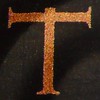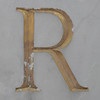1. I have too many pictures to go through.
2. It's easy to upload. Not so easy to organize.
3. EXIF data is really useful when you can't remember what was taken when.
This was my first time using Flickr, but not my first time using the web to store my photos. I used to have a Photobucket account - still do, probably. When I started using Photobucket, Flickr wasn't around so much, and when it was around more, I guess I thought it was more for real photographers, because they were the only people I knew who used it.
Anyways, my library already uses Flickr, but we could probably do more in taking pictures of what we're up to and organizing them so that they're easier to find. I think organizing is the hardest part. What makes the most sense to you may not make the most sense to others, and just how far should you go in separating things? By branch? By branch and by activity? Should you groups types of activities together, like keeping adult programs separate from youth programs. I guess it depends on your personal preference.
Oh,
click here for the link to my photostream.











